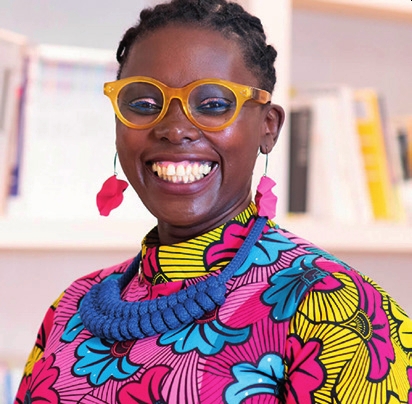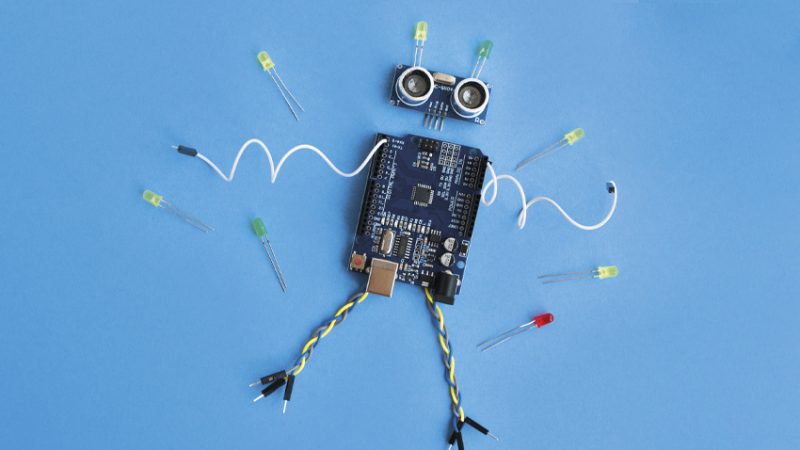STEM – “10 years from now, UK students will be left behind”

Tech CEO Lady Mariéme Jamme shares her thoughts on how STEM is currently being taught, and why coding isn’t catching among students in the way it should be…

I didn’t go to school. I began to read and write from around the age of 16, then quickly moved on to reading intensively, before gradually getting into mathematics.
Without a formal education, however, I struggled to get a job in my 20s because I didn’t have the necessary credentials. Where I could, I would work cleaning jobs in hotels and restaurants during the day, before visiting my local library in the afternoons and evenings.
It was my difficulties at securing jobs that first inspired me to learn how to code. I immersed myself in basic coding skills, and just as I had with reading, began studying code much more intensively and eventually picked up seven different coding languages in two years.
A coding conundrum Years later, I now wear two hats – I’m a software developer and coder, and also run a UK software company called Spotone Global Solutions which sells educational platforms, and supplies chain management software and enterprise resource planning solutions to government, private sector and charitable organisations.
Within the last couple of years I’ve begun trying to help marginalised girls across the world without online access, and launched a charity called iamtheCODE, the aim of which is to teach a million women and girls how to code by the year 2030. We’re now in 68 countries around the world and have taught 25,000 girls how to code so far.
I gave iamtheCODE a global focus, because I thought the problem of how to interest girls in coding was one you’d find in parts of Africa and South America, but I’ve seen just as many issues, if not more, in the UK. Here, the standard narrative is that we can do it all – but if you look at the take-up of coding among girls, what you’ll actually find is that girls across South America, Africa, the Middle East and Asia are far better at coding their UK peers.
I’ve visited public schools and seen girls who have access to all the resources they could want, but little interest in using coding as a creative tool. By contrast, I’ve met many girls of similar ages in India and Brazil who can code in two or three languages and know all about CSS, JavaScript and more besides.
Telling a story
Personally, I would put this down to how wider conversations around STEM education often overlook the crucial importance of coding to these girls’ everyday lives. How did Facebook, Instagram, TikTok and all these huge internet platforms come to exist? They’re there because of coding. And yet, approaches to digital skills and innovation in the UK tend to focus mainly on STEM.
The messaging, language and narratives that surround STEM does little to get girls excited, but nor is there much talk of why coding is important, what it actually does and how knowledge of coding can lead to successful careers in the tech sector.
STEM conversations often revolve around ‘technology’ and ‘innovation’, and focus far less often on specific areas such as data, statistics, AI, machine learning or big data. Girls are unable to get excited about any of those things, because they barely know what they are.
In my own conversations with girls attending school in the UK, there’s little familiarity with this language, but also very few people helping them understand why coding is important. Part of my coding education involved performing tasks with Excel. I was able to recognise and learn how to use the symbols I needed in part by being good at maths, but I wouldn’t say that maths made me a coder. I became a coder because I wanted to tell a story.
Forging links
Something else stopping girls in the UK from making further advances in coding is that we when we talk about ‘technology’ here, we still tend think of computers first, rather than smartphones. Those African girls who can code have experience of developing applications for the Android mobile platform, but many girls in the UK aren’t even aware that Android exists.
(There’s also the fact that online access is widespread in the UK; in countries with more limited access, the ability to build applications that can run on an Android device without an internet connection is very helpful).
Education around coding could be improved by making clearer links between programming languages, the online platforms students are familiar with and what it takes to create them. What language would you need to know in order to help maintain BBC iPlayer, YouTube or Instagram? When giving lectures at schools and universities, I’ll spend some time discussing the differences between a frontend and a backend, and what the role of a user interface designer might involve versus an engineer who will spend most of their time working with a platform’s underlying code.
Coding can sometimes be presented in a way that attempts to make it look easy, but coding is often complicated and requires discipline. When coding is taught appropriately, girls and boys alike will need to properly apply themselves.
That said, the tools used to teach coding are now much more streamlined and accessible than they once were. It’s possible for aspiring programmers to build their first applications within just two to three days using drag and drop design interfaces that are now commonplace, but we mustn’t lose sight of how the core fundamentals of coding ultimately require some understanding of STEM subjects, as well as art and design when it comes to user interfaces.
Moving forward
We haven’t sufficiently invested in developing the knowledge and skills of girls and boys in marginalised communities. I’ve been making regular donations of computer equipment to my local library, which is facing closure. I came to the UK as a broken 16-year-old girl, having had a terrible childhood. I had no mum and dad, no experience of formal education, but from going to the library I was able to learn how to read and write in a safe space where I could immerse myself in books. That saved my life.
If we want to move forward from where we are, then we need to invest in teachers. Let’s develop their digital skills and have the confidence and honesty to explain what programming languages actually are, so that students, and young girls in particular, can develop ambitions to build applications one day, and know what they need to do to get there.
Without that, we’ll be wasting our time. If nothing changes, then 10 years from now UK students will be left behind by their peers in Africa, Asia and the Middle East, because the girls I’ve seen in those parts of the world are serious. They’re the ones who’ll be running tomorrow’s equivalent of Google.
If the UK genuinely wants to produce the next Mark Zuckerberg, Amazon rival or multimillion dollar tech company, then starting now, we need to give our young people a better understanding of not just the business that surrounds STEM, but also the software and hardware that drives it.
Lady Mariéme Jamme is the Founder of iamtheCODE.org; you can hear her speak on The Good Business Festival’s Reinventing Business Through Inclusion panel, available to view on demand here; for more details, visit mariemejamme.com or follow @mjamme.












